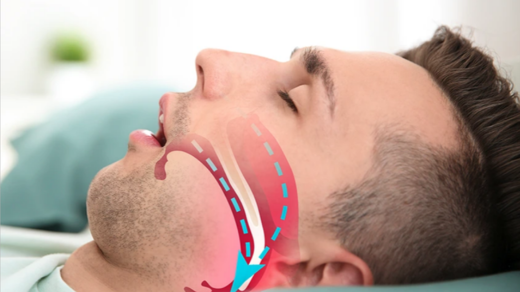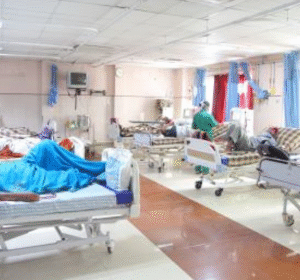
Sleep apnea is a serious condition that affects millions of individuals worldwide, disrupting the natural flow of breathing during sleep. If left untreated, it can lead to numerous health problems, including high blood pressure, heart disease, and even stroke. While lifestyle changes, continuous positive airway pressure (CPAP) therapy, and oral appliances are common treatments, some patients may require sleep apnea surgery for more effective and lasting relief. In this article, we’ll explore how sleep apnea surgery works and how it can significantly improve both your sleep quality and overall health.
Understanding Sleep Apnea
Sleep apnea occurs when the muscles in the back of the throat relax excessively during sleep, obstructing the airway. This leads to repeated breathing interruptions, which can last for several seconds or even minutes. The most common type, obstructive sleep apnea (OSA), is typically associated with loud snoring, choking, or gasping during sleep. Central sleep apnea, though less common, involves a failure in the brain’s signals to regulate breathing.
Regardless of the type, untreated sleep apnea can severely impact your health. The repeated oxygen deprivation during sleep increases stress on the cardiovascular system, raising the risk of heart attacks, hypertension, and other serious complications. Additionally, it can cause daytime fatigue, impaired cognitive function, and decreased quality of life.
When Is Sleep Apnea Surgery Necessary?
For many individuals, non-invasive treatments like CPAP therapy or weight management can control sleep apnea symptoms effectively. However, when these methods are unsuccessful or when the anatomy of the airway is such that non-surgical options are inadequate, sleep apnea surgery may be considered. Surgery is often recommended for individuals who:
- Have severe obstructive sleep apnea that does not respond to CPAP therapy or lifestyle changes.
- Have a significant anatomical abnormality contributing to their sleep apnea, such as enlarged tonsils, a deviated septum, or excessive tissue in the throat.
- Are unable to tolerate CPAP devices or other non-surgical interventions.
Common Types of Sleep Apnea Surgery
Several surgical procedures are available to treat sleep apnea, and the best choice depends on the underlying cause of the condition. Below are the most common types of sleep apnea surgery:
1. Uvulopalatopharyngoplasty (UPPP)
One of the most common surgeries for obstructive sleep apnea is uvulopalatopharyngoplasty (UPPP). This procedure involves the removal of excess tissue from the throat, including the uvula (the small fleshy tissue that hangs at the back of the mouth), the soft palate, and sometimes the tonsils. The goal is to widen the airway to prevent it from collapsing during sleep. This surgery is effective for patients with excess tissue in the throat, although it may not be suitable for those with more severe cases or additional contributing factors.
2. Genioglossus Advancement (GA)
Genioglossus advancement is a procedure that targets the tongue muscles. It involves repositioning the muscles that control the tongue to prevent them from collapsing backward and blocking the airway. This procedure is often recommended for individuals whose sleep apnea is caused by the tongue falling back into the throat during sleep.
3. Inspire Therapy (Upper Airway Stimulation)
Inspire therapy is a newer, implantable device that helps regulate breathing during sleep. A small device is surgically implanted under the skin of the chest, and it stimulates the muscles in the airway to keep them open during sleep. This is particularly beneficial for patients who cannot tolerate CPAP therapy and have moderate to severe obstructive sleep apnea.
4. Septoplasty and Turbinate Reduction
For patients with sleep apnea caused by nasal blockages, septoplasty and turbinate reduction procedures can help. Septoplasty involves correcting a deviated septum, which can obstruct airflow through the nose. Turbinate reduction reduces the size of the turbinates (structures inside the nose), making it easier to breathe through the nose. These surgeries are often used in combination with other procedures to treat sleep apnea.
Benefits of Sleep Apnea Surgery
Undergoing sleep apnea surgery can significantly improve both your sleep and overall health. Some of the benefits include:
- Improved Sleep Quality: By restoring proper airflow, sleep apnea surgery can reduce or eliminate interruptions in breathing, leading to deeper, more restful sleep.
- Reduced Risk of Cardiovascular Issues: Sleep apnea is a major risk factor for high blood pressure, heart disease, and stroke. Surgical intervention can lower these risks by addressing the root cause of the breathing disruptions.
- Enhanced Daytime Energy: With improved sleep quality, patients often experience less daytime fatigue, improved cognitive function, and better overall quality of life.
- Long-Term Relief: While CPAP therapy may be effective, some individuals find the device uncomfortable or inconvenient. Sleep apnea surgery offers a permanent or long-term solution, providing sustained relief from the symptoms of the condition.
Conclusion
Sleep apnea surgery can be a life-changing treatment for individuals who struggle with severe symptoms despite non-surgical interventions. While the decision to undergo surgery should be made in consultation with a sleep specialist, the potential benefits of improved sleep, better health, and enhanced quality of life make it a compelling option for many patients. If you’re considering surgery for sleep apnea, speak with a qualified healthcare professional to discuss your options and determine the most appropriate approach for your condition.






